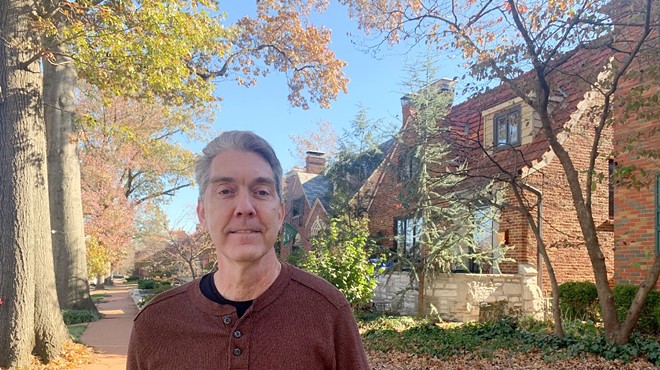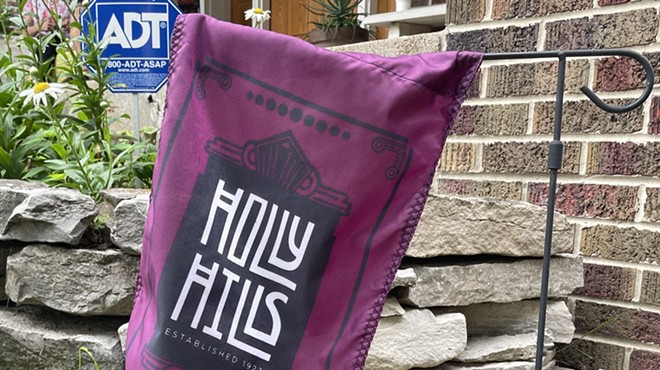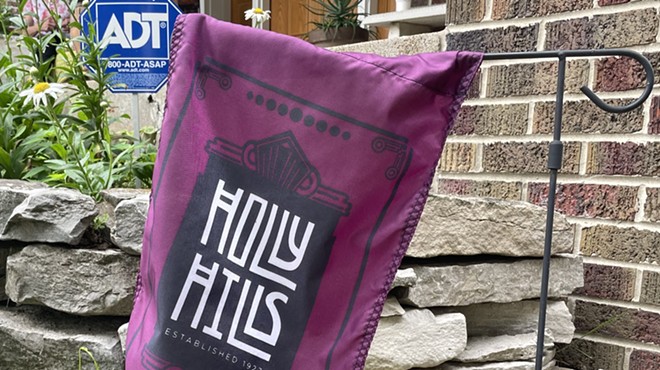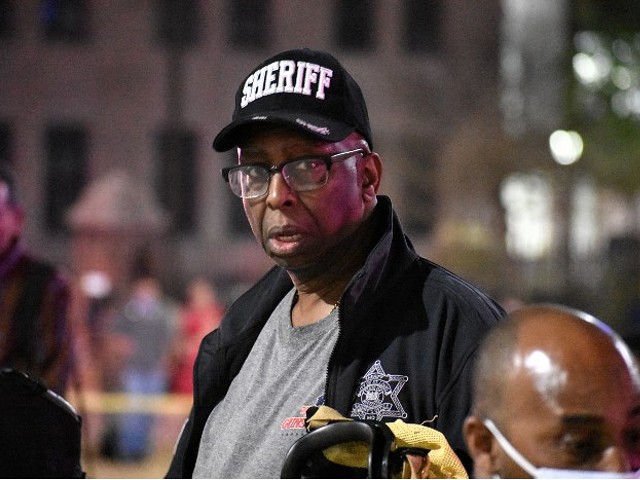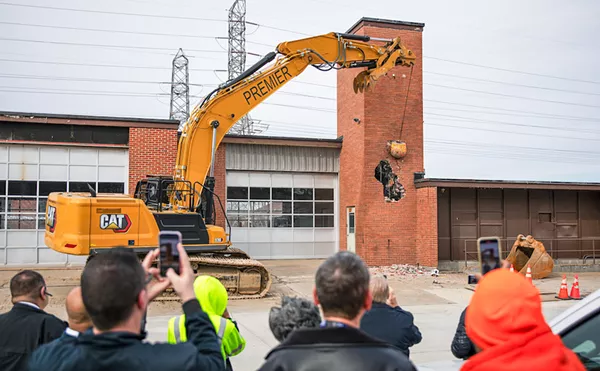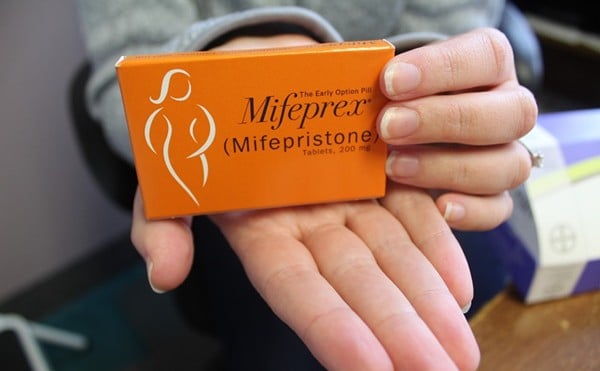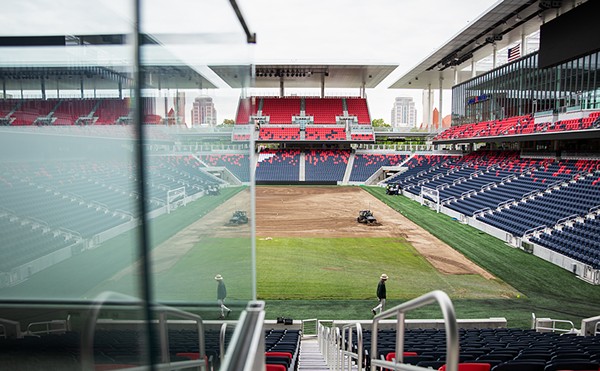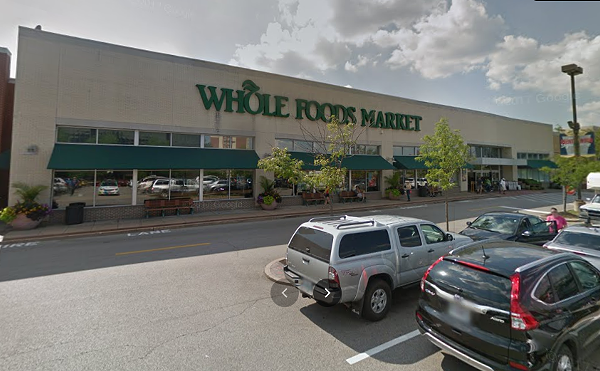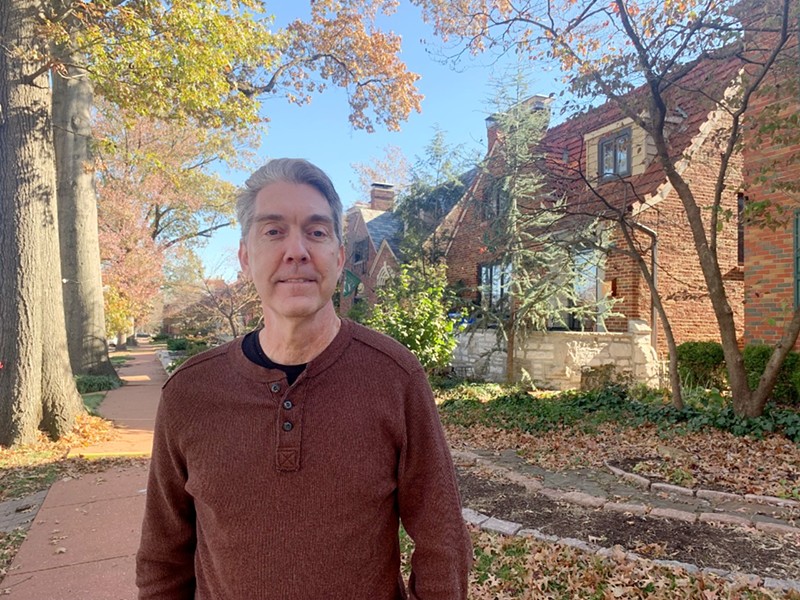
Monica Obradovic
Software programmer Tom Scheifler chairs the safety committee for the St. Louis Hills Neighborhood Association, which backed the creation of a new business district.
That was almost one year ago. And if you imagined anything would change any time soon, you haven't been in St. Louis very long.
Last night, another neighborhood voted to tax itself to pay for private policing.
Proposition S, which passed with 55.8 percent of the vote in final but unofficial results from the St. Louis Board of Elections, will cost the average homeowner in St. Louis Hills about $180 each year. The money is meant to increase the neighborhood's system of surveillance cameras.
Tom Scheifler, chairman of the St. Louis Hills Neighborhood Association, told KSDK the goal is to get a camera on every block. And, this being St. Louis, the funds will also pay for an off-duty officer to respond to the cameras and provide additional patrols (because lord knows the police department we fund with our tax dollars would never have the resources for that sort of thing).
It's hard to blame St. Louis Hills on this one. Long considered one of the city's most stable neighborhoods, with many young families, it's recently seen some disturbing incidents of crime, including a 6-year-old boy being snatched off his bike and sexually assaulted. The perpetrator was apparently a repeat offender in the same neighborhood — and it was the surveillance cameras paid for by residents that led to his apprehension.
You'll hear similar arguments in the Central West End and Downtown and the Grove business district, which also pay for private policing: If the city's police force was able to address the crime in their streets, they wouldn't have to tax themselves on top of the usual rate. Nobody likes paying more for something that should be considered an essential city service. Yet many less affluent neighborhoods have even higher crime rates. Who answers when they need help?
Last September, not long after ProPublica's scoop and one month after the Holly Hills neighborhood said yes to its own special district, city officials said they planned to review how city officers were used by private companies to provide policing. In December, they told ProPublica they wanted to hire a consultant for that task. That does not appear to have happened yet. (We reached out to the city on very short notice this morning and will update this post if we hear back.)
In the mean time, the city has hired a new police chief. But with everything else on his plate, it's hard to imagine his top priorities is exploring new policies that will anger both affluent neighborhoods and police officers accustomed to their side gigs.
And so officers continue to take part-time jobs that mirror what the taxpayers pay them to do, and neighborhoods that can afford it continue to dig into their wallets to pay extra for policing. It's just like we handle schools, really, with those who can paying for peace of mind when others cannot. Nothing to see here! In St. Louis, all citizens are equal — but some are more equal than others.
Subscribe to Riverfront Times newsletters.
Follow us: Apple News | Google News | NewsBreak | Reddit | Instagram | Facebook | Twitter | Or sign up for our RSS Feed

